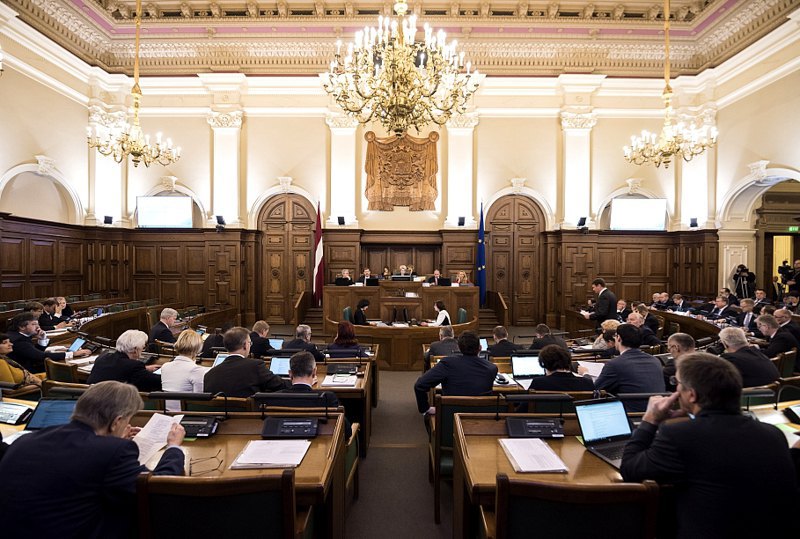
In early September, the Latvian Saeima adopted a law according to which the Latvian Orthodox Church becomes completely independent of any church authority outside the state of Latvia, and its status is defined as autocephalous.
The law was approved promptly and almost unanimously. Less than a week passed from the president's address to the Saeima to the final adoption.
This story is a precedent in itself. Latvia (like Ukraine) is a secular state (Article 99 of the Constitution), that is, the church is separated from the state and the state does not interfere in its activities in any way. The life of the LOC, as well as the entire world Orthodoxy, is governed by the norms of canon law.
That is, the state cannot declare the church "independent" (such status, according to canon law, does not exist at all). Moreover, it cannot declare it "autocephalous" (in the case of the LOC, this can be done either by Moscow or Constantinople).
But in reality, it happened.
How did it all happen, what did Saeima MPs do, what does the LOC think about this, and what future awaits it?
LB.ua decided to look deep into the issue to understand whether the experience of Latvia can somehow help Ukraine. After all, following the exposure of numerous cases of collaboration, betrayal and aiding the enemy by UO representatives (which is allegedly not of the Moscow Patriarchate. Although from the point of view of the same canon law it was, is and remains a component of the Russian Orthodox Church.) - from ordinary priests to entire bishops - the discussion about the complete ban of the UOC (allegedly not of the Moscow Patriarchate) at the legislative level has significantly intensified.
How did everything happen?
Formally, the law was authored by Latvian President Egils Levits. "Levits is a well-known constitutionalist, former justice minister, enjoys high respect in professional circles," a Saeima deputy close to the process told LB.ua.
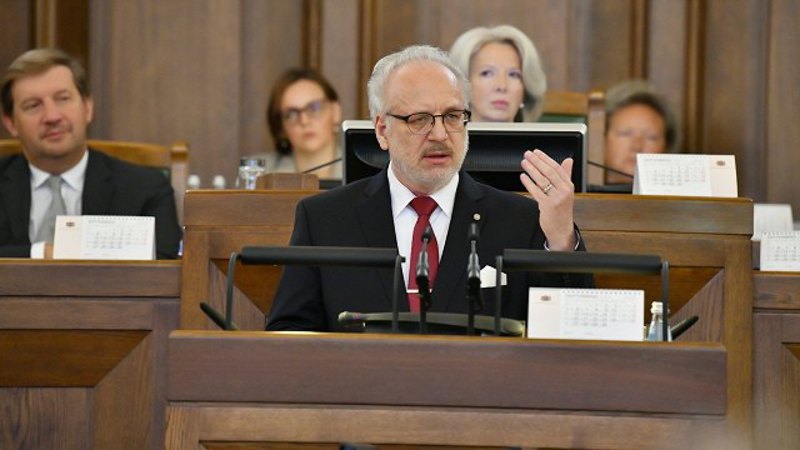
"The very fact that he became the subject of the legislative initiative has already strengthened its position. Why did we work so quickly? Because we understood: if we dive into details, dragging heels between the first and second reading, we will drown in discussions. And so the document was supported even by those of our colleagues who are known for their, let's say, pro-Russian slant," he adds.
The motivation is to protect national security. "There is a risk that the leadership of the Russian Orthodox Church may unilaterally eliminate the full autonomy and independence of the LOC and de facto change its canonical status," the president's letter to the Saeima emphasizes, referring, in particular, to intelligence data.
It is pointed out that the decision is purely legal and does not concern canonical issues (although in practice it turned out differently).
Historical arguments play the support role. It is noted that a century ago the LOC already had autocephaly (unfortunately, this is not true), and now the state is just returning everything back to normal.
But in fact, the process was initiated by the head of the LOC, Metropolitan Aleksandrs (Kudrjašovs).
Sources in the Saeima confirm this (although to be honest, for anyone who is even a little bit interested in the issue, it was obvious even by formal signs alone).
"Yes, they really turned to us, asked us to support them. Of course, we agreed to handle this responsibility. The process of drafting the text of the bill was kept in great secrecy, only a few people knew about it," said another interlocutor in the Latvian authorities.
Wow, that's interesting. And what is in it for the LOC?
Metropolitan Aleksandrs (Kudrjašovs) has been heading the LOC since 1990. He and his bishops have always taken a pro-Latvian, patriotic position. It is clear that this irritated Moscow. Very much. Buckets of compromising material have been slung over the bishop. The most famous case is the publication of evidence that he was recruited by the KGB under the pseudonym Reader. The degree of cooperation is unknown.
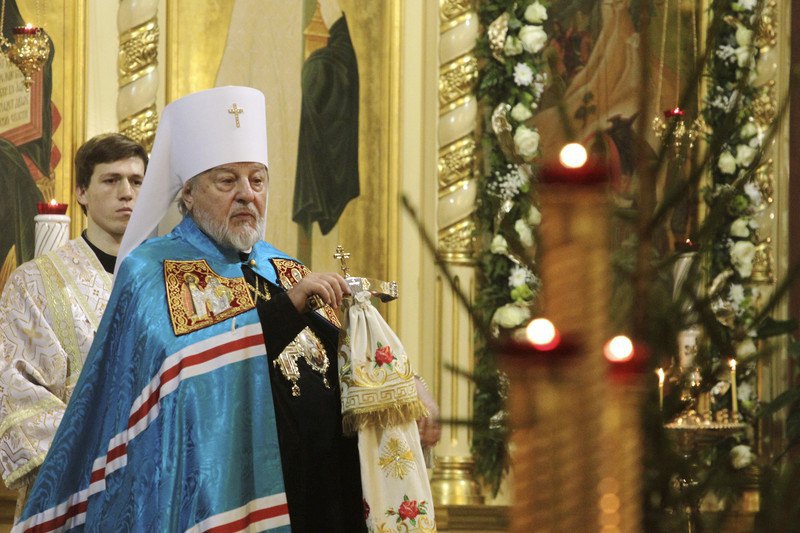
(The "kompromat" is mediocre a "C". Again, anyone who is at least superficially interested in religion knows that in Soviet times, the authorities tried to drag almost every churchman who made a career "into their orbit" (Ukrainian bishops of venerable age are no exception). Usually it was just a formality. Nothing special, let's move on).
When it did not work, Moscow began to discuss how to replace the Metropolitan (internal rules can be stretched to make it happen). There was also a formal reason too as he is over 75 (now the bishop is 83).
And, of course, the Ukrainian events were the last straw. The LOC decided not to wait and act proactively. "Honestly speaking, if they had not applied, we would hardly have raised the issue ourselves," sources in the Seima agreed.
Was the Latvian Church already autocephalous or not? Explain normally
I'll explain.
In a letter to the Seima, President Levits states: yes, it was. And he refers to the letter of Patriarch Tikhon of 1921, which was later confirmed by Patriarch Alexy (Ridiger) in the early 1990s.
But. Here, as my colleague Michael Schur says, there are two huge "buts".
One.
You know that I like documentary evidence of everything, so let's read. "To His Grace Janis (John), Archbishop of Riga. With the blessing of His Holiness the Patriarch, the Holy Synod and the Supreme Church Council, in the united presence, have judged to grant the Orthodox Church in Latvia independence in matters of church-administrative, church-educational and church-civil affairs.
Resolved: Taking into account that the Orthodox Church of Latvia is within the borders of an independent state, to grant the said Church to enjoy independence in all church-administrative, church-educational and church-civil matters, and to inform Your Eminence thereof. 6-9 July 1921, No 1026."
LOC head Archbishop John (Pommers) received this letter in July 1921. Janis Pommers (by the way, a graduate of the Kyiv Theological Academy) is an absolutely legendary personality. Extremely educated, he carried out large-scale reforms of the LOC, significantly strengthening its position.
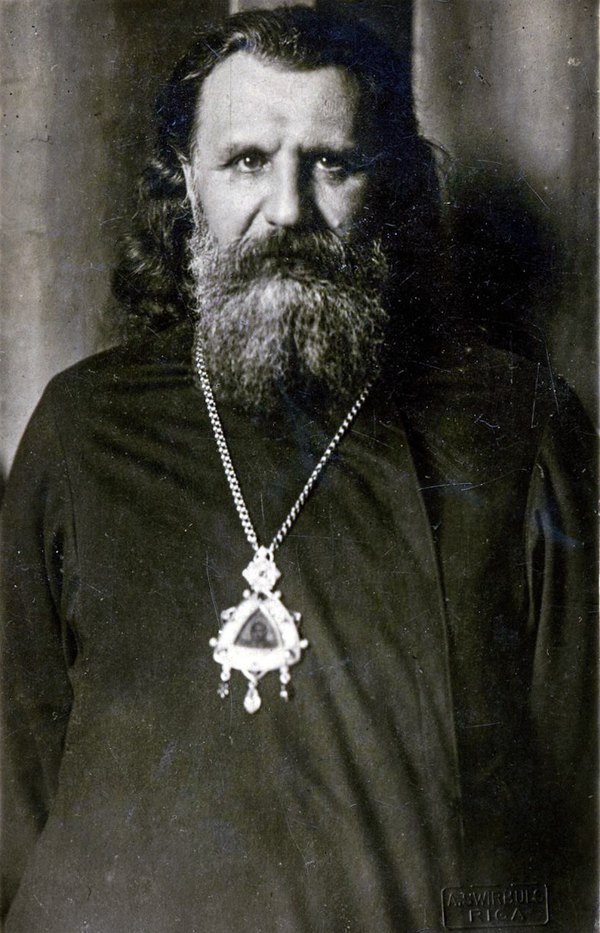
In October 1934, he was brutally murdered by the Bolsheviks. More than 100,000 people took to the streets of Riga to say goodbye to the bishop (which is very much for such a city). He was canonized.
As we can see from the letter, it is about the right of the church to independently organize its life. But no more than that. There are no words "autocephaly" and/or "autonomy" here.
In addition, let us read the letter of John (Pommers) to Metropolitan Eleutherius (I quote from the archives of his correspondence - S.K.): "I exercise the rights granted to me, meticulously observing the exact content of the formulas of the document issued to me. Without allowing any speculation - even in verbal formulation - of my canonical position. Tempting words such as "autocephaly" and "autonomy" are not used neither by me nor by my bodies (meaning subordinates - S.K.). At the same time, however, I am deeply convinced that the rights granted to me were both canonically appropriate and expedient."
Now the second "but".
Shortly after Pommers was killed, the LOC decided to move under the jurisdiction of the Patriarchate of Constantinople.
It is clear that the Moscow Patriarchate did not recognize this ("strange", isn't it?), and in 1940 the Soviet occupation of Latvia began, and everything seemed to be reset.
In 1994, the broad rights of the Latvian Church were confirmed by the Council of the Russian Orthodox Church. The text of the confirmation repeated- word for word - the letter of Patriarch Tikhon without changes.
This is important.
Thus, we see that the argumentation of President Levits during the presentation of this law is, to put it mildly, manipulative. That the LOC has never been autocephalous/autonomous in the canonical (because, again, church life is regulated by canon law, not secular) sense. And the state, even if it deeply wishes so, cannot proclaim this.
Didn't the Saeima know all this?
They did. "Our goal was not to put the church under our control. The goal was to legally ensure that Russia could not in any way influence the activities of the LOC. Since they themselves asked to intervene, we proceeded from the fact that they themselves know what is best for them and what is right. Of course, in the future we will not interfere in their affairs and they will organize their lives on their own. And as for the term "autocephaly," for us, the secular authorities, it has only a general legal meaning, we do not interfere in the canons," the already quoted interlocutor comments.
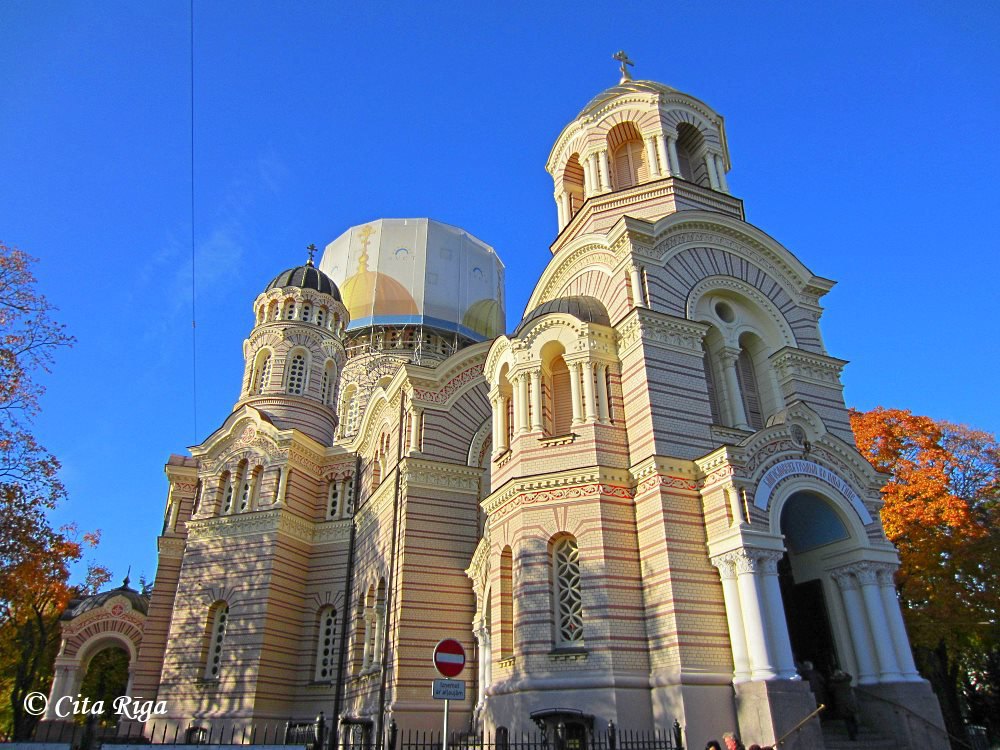
How did the LOC react?
Its public reaction was restrained. For several days after the adoption of the law, the LOC kept a theatrical pause and then made a concise statement, saying we are not only holy fathers, but also citizens of our state; and these citizens abide by law. So if the Saeima says so and asks us to bring our statute in line with the new norms by 31 October, we will do it.
On 20 October, the LOC held a council. One of the decisions was a formal appeal to Moscow with a request for autocephaly.
After all, since, as we found out, the LOC did not have it before, and the state says that it did, the LOC asks Moscow to grant such autocephaly.
We should give credit to Metropolitan Aleksandrs, he is a wise, experienced and extremely cautious man.
It is clear that the ROC will not grant any autocephaly (especially because of some decisions of secular authorities) to Riga.
So what will happen next?
As far as canon law is concerned, the LOC enters a gray area.
Just like the UOC (allegedly not of the Moscow Patriarchate). After all, they believe that they have broken with Moscow (both of them), but until Moscow confirms it (sorry, but the world Orthodoxy is arranged in this way), they are formally connected with it.
Of course, from the very beginning the LOC understood this and such a scenario suits them - to sit on the shore, waiting for something to flow down the river... Well, you know what should float there. After all, it is absolutely obvious that after the fall of the Putin regime, one of its foundations - the Russian Orthodox Church - in its current form will also crumble.
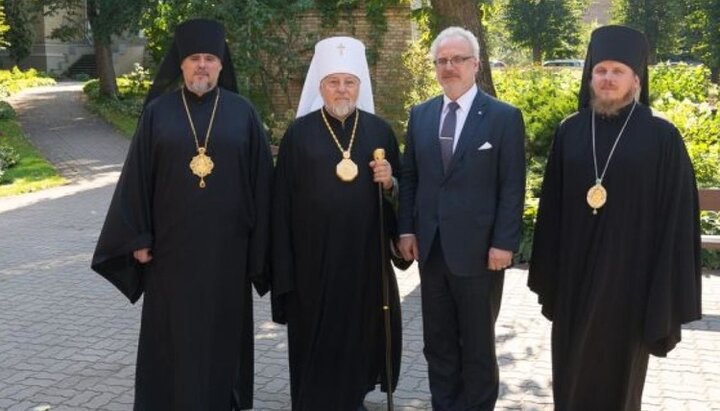
It says that before the occupation Latvia was under Constantinople. Why not repeat it?
Absolutely logical.
Now is a unique opportunity for the LOC to appeal to Phanar with a request for a full-fledged tomos, and therefore for a full-fledged (!) local church. So that once and for all. Like the Orthodox Church of Ukraine did.
"Can Phanar theoretically consider such a question? To consider - of course, why not. But we ourselves will not take the initiative, it should be done by the country itself," a respected representative of the Ecumenical Patriarchate explained to LB.ua.
Let us recall that in 2018, the process of organizing the Orthodox Church of Ukraine began with the corresponding request of the Verkhovna Rada to Patriarch Bartholomew.
It should be the same here.
"If the LOC asks us, of course, we will prepare such an appeal," said our interlocutor from the Saeima, "but if they ask. Only the LOC knows better whether they want to have the tomos or not."
At the same time, he adds: the already adopted law provides for a number of safeguards, and if something happens, the LOC will not be able to simply return to Moscow.
As of today, the LOC has not raised the issue of a tomos from Constantinople. At the same time, according to LB.ua, neighboring Lithuania is carefully studying this possibility and, in particular, the relevant experience of Ukraine.
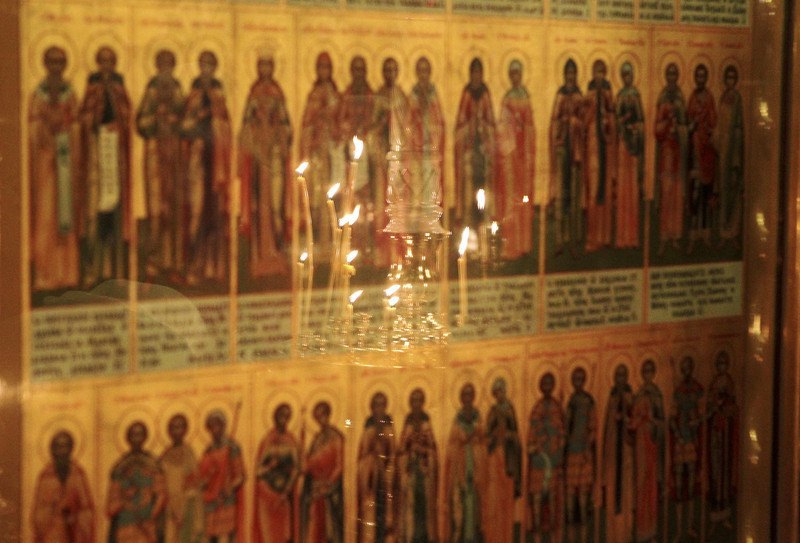
Good. So, they were able to do it in Latvia, but is this experience applicable to Ukraine?
If copied blindly, it is definitely not. After all, the most important thing in Riga was the sincere desire of the Church leaders to escape from the influence of Moscow.
I emphasize: sincere. Yes, they asked the state to help them - to safeguard them, but it all started with them.
Unlike the LOC, the UOC (allegedly not of the Moscow Patriarchate) favoured cosmetic changes that do not change anything in essence.
Yes, they announced at the Council on 27 May that they were breaking up with Moscow, but the relevant amendments to the statute have not yet been officially published. And, of course, they will not be.
Their idea is to somehow wait until the end of the war (keyword "somehow") and then make up their mind.
The very initiative of the Council and all the decisions approved there belonged to Metropolitan Onufriy - for many of those present it was a surprise. Especially for the main "hawk" of the Moscow Church in Ukraine, Antony Pakanych. And even for then MP Vadym Novynskyy, who was sincerely indignant: "This is a split!"
That is, we cannot say for sure that Onufriy personally takes an openly pro-Russian position. Rather, he is trying to balance somewhere above the clash. He is not very successful in this - his actions are half-hearted, he does not finish what he started, respectively, pro-Russian sentiments in the leadership of the UOC (I emphasize: in the leadership, not on the ground) are winning.
At the same time, the Crimean diocese and part of the Luhansk diocese disagreed with the decision of the Council and moved under Moscow's direct subordination. At least three bishops (!) of the UOC proved to be outright collaborators and fled to Russia. The fourth has already been convicted of treason by the Security Service of Ukraine, and another one (right now, when you are reading these lines) is being searched (the first is Ionafan (Jonathan) of Vinnytsya, the second one is Iosaf (Josaph) of Kirovohrad). I am not even talking about the priests who provided premises for holding "referendums" and then sat at the "festive ceremony" in the Kremlin; or the priests who adjusted enemy fire in the literal sense of the word.
There was no indignant reaction to such cases either from the Synod or personally from His Beatitude Onufriy.
Not even once.
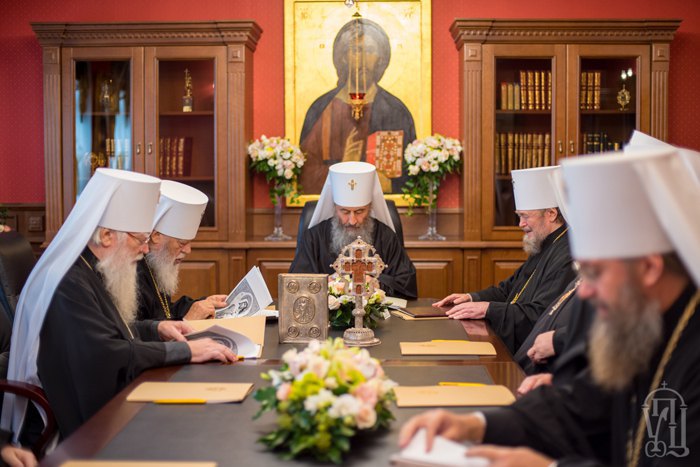
There were some absolutely meaningless statements of the "information department" of the UOC (allegedly not of the Moscow Patriarchate), but they were not even signed. If they disappear from the official website of the UOC tomorrow, no-one will even notice.
By the way.
In 2016, when a case was opened against Vadym Novynskyy in connection with possible complicity in an attempt on the life of Metropolitan Volodymyr (Sabodan), who was already gone by that time, the entire Holy Synod gathered in his support. And Onufriy personally signed the statement of the Synod.
Well, so much for "priorities".
To protect Novynskyy? Absolutely!
Recognize, punish, condemn, defrock their own collaborators? No, we have not heard any such thing, it will somehow resolve itself.
What should be done about this? Can't Ukraine ban the Moscow church by law?
According to the Constitution, no, it cannot. And the Constitution cannot be changed during martial law.
Thus, back in March, two draft laws were submitted to the Verkhovna Rada that provide for this. However, the ways in which this is proposed to be done are imperfect, to put it mildly. Even in the OCU, almost everyone (almost means without taking into account the position of the hawks) recognizes that a direct ban will not only harm, but will provoke serious conflicts here and now, and in the future will have the exact opposite effect (proven by a number of historical examples, in particular of Greek Catholics).
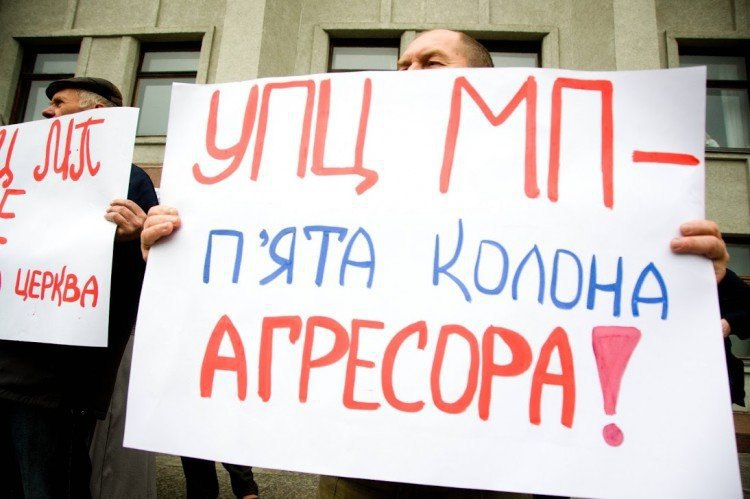
And what is the way out?
There are three articles in the Criminal Code of Ukraine that prescribe punishment for treason, collaboration and aiding and abetting (in fact, there is little difference there). For example, for officials or security forces (and even teachers) who defected to the enemy, a more severe form of responsibility is provided than for ordinary citizens. The concept of "spiritual collaborationism" does not exist at all. That is, when Bishop Yelysey of Izyum (who later fled to Belgorod) blessed the "head" of the occupying administration from the church pulpit, formally he did not violate anything - it will be extremely difficult to prove the opposite legally.
Or when Ukraine regains Crimea and part of Luhansk Region, it will have to decide what to do with the dioceses, which, as noted above, ignored the decision of the Council of the UOC and asked to be under the omophorion of Moscow.
So when the SBU catches - quoting acting SBU chief Vasyl Malyuk - "a gunner in a cassock", and he has correspondence with his handler in his phone, everything is clear, he will be held responsible as a citizen of Ukraine.
But most cases with collaborating priests are much more complicated (it is noteworthy that similar stories in the ranks of the OCU, Greek or Roman Catholics, Baptists, etc. are unknown).
By the way. Since the beginning of the war in 2014, none of them has been included in the sanctions lists. Not a single one, think about it. Even after 24 February. Here, the secular authorities are no different from the leadership of the UOC (allegedly not of the Moscow Patriarchate), preferring to simply "ignore" egregious cases.
So now the only constructive and adequate scenario seems to be the strengthening of the Criminal Code and further conscientious work by law-enforcement agencies.
According to information available to LB.ua, the relevant discussions have already started in parliament. But it is a big question whether they are going to have any results, whether they will be held in a civilized framework. Unfortunately, I am not sure.








